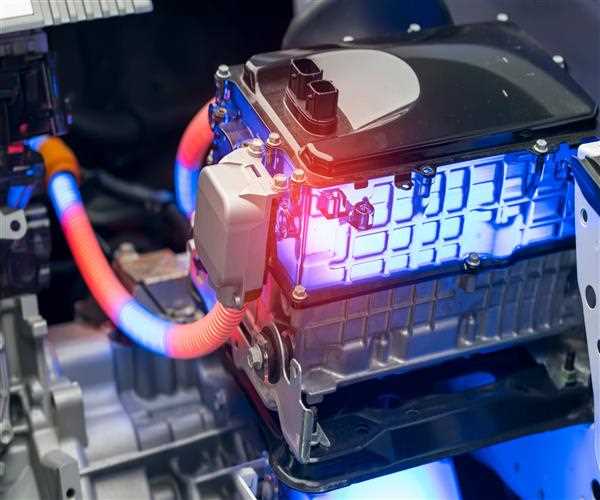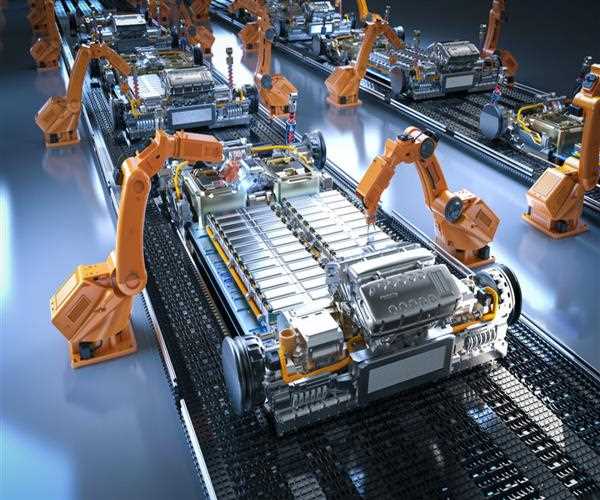
27-Jul-2023 , Updated on 7/27/2023 9:37:55 PM
Future of Electric Vehicle Batteries- Challenges and advancements
Highlights
1. Advancements in Battery Chemistry
- Lithium-ion batteries have dominated the EV market due to their high energy density and efficiency.
- Solid-state batteries show promise with enhanced safety, faster charging, and potentially higher energy densities compared to traditional liquid electrolyte batteries.
- Lithium-sulfur batteries offer higher energy densities and reduced cost but face challenges related to cycle life and stability.
2. Increased Energy Density
- Improving the energy density of batteries is crucial for extending EV range and reducing charging frequency.
- Researchers are exploring various materials and designs to enhance energy storage capabilities.
3. Faster Charging Technologies
- Ultra-fast charging solutions aim to reduce charging times significantly.
- Advanced cooling systems and optimized charging algorithms help manage heat generation during rapid charging.
The future of electric vehicle (EV) batteries is bright. With continued advancements in battery technology, EVs are becoming more affordable, efficient, and practical. This is leading to a growing demand for EVs, which is in turn driving further innovation in battery technology.
Advancements in EV battery technology
There have been a number of significant advancements in EV battery technology in recent years. These include-
Increased energy density- This means that batteries can store more energy in the same amount of space. This leads to longer driving ranges and lighter batteries, which can improve the performance and efficiency of EVs.
Faster charging- New charging technologies are being developed that can charge EV batteries in a fraction of the time it takes to charge a traditional gasoline-powered car. This makes EVs more convenient to own and use, and it could help to reduce range anxiety, which is a major barrier to EV adoption.

Lower costs- The cost of EV batteries has been declining steadily in recent years. This is due to a number of factors, including economies of scale and the development of new, more efficient battery chemistries. As the cost of batteries continues to decline, EVs will become more affordable for a wider range of consumers.
Lithium-Ion Batteries- The Current Standard- Lithium-ion (Li-ion) batteries have become the industry standard for electric vehicles due to their high energy density, long life cycles, and relatively low weight. These batteries use lithium ions to shuttle between the positive and negative electrodes during the charging and discharging processes. Continuous research and development have led to incremental improvements in the chemistry of lithium-ion batteries, enhancing their performance and reducing costs.
Solid-State Batteries; The Next Leap- One of the most promising advancements in EV battery technology is the development of solid-state batteries. Unlike traditional liquid electrolytes found in Li-ion batteries, solid-state batteries use solid electrolytes, providing several advantages such as increased safety, higher energy density, and faster charging times. Solid-state batteries have the potential to significantly improve the range and reduce charging times for electric vehicles, making them a key area of focus for researchers and manufacturers.
High-Nickel Cathodes; Enhancing Energy Density- Another area of advancement is the use of high-nickel cathodes in battery cells. By increasing the nickel content in the cathode, manufacturers can enhance the energy density of the battery, enabling vehicles to travel longer distances on a single charge. However, high-nickel cathodes come with their challenges, including reduced stability and increased risk of thermal runaway. Researchers are actively working to overcome these hurdles to ensure the safety and reliability of high-nickel cathode batteries.
Challenges facing EV battery technology
Despite the progress that has been made, there are still a number of challenges facing EV battery technology. These include-
The availability of raw materials- The production of EV batteries requires a number of raw materials, including lithium, cobalt, and nickel. These materials are not always abundant, and their prices can be volatile. This could pose a challenge to the long-term sustainability of the EV industry.
The environmental impact of battery production- The production of EV batteries can have a significant environmental impact. This is due to the mining and processing of raw materials, as well as the energy consumption involved in manufacturing batteries. However, there are a number of initiatives underway to reduce the environmental impact of battery production.
The safety of EV batteries- EV batteries are powerful devices, and they can pose a fire hazard if they are not properly designed or managed. This is a serious challenge that needs to be addressed before EVs can become mainstream.
The future of EV battery technology
The future of EV battery technology is promising. With continued research and development, it is likely that these challenges will be overcome. This will make EVs more affordable, efficient, and practical, and it will help to accelerate the transition to a cleaner transportation future.
Here are some of the potential advancements in EV battery technology that could be seen in the coming years
New battery chemistries- There are a number of new battery chemistries that are being developed that could offer improved energy density, faster charging, and lower costs. These include lithium sulfur, lithium-air, and solid-state batteries.
Advanced manufacturing techniques- New manufacturing techniques could be used to produce EV batteries that are more efficient and cost-effective. These techniques could include 3D printing and laser sintering.
Improved battery management systems- Battery management systems (BMS) are used to control the charging and discharging of EV batteries. Improved BMS could help to improve the safety and performance of EV batteries.
The impact of EV battery technology on the environment
The environmental impact of EV battery technology is a complex issue. On the one hand, EVs produce zero emissions when they are driving, which can help to reduce air pollution and greenhouse gas emissions. On the other hand, the production of EV batteries requires the mining and processing of raw materials, which can have a negative impact on the environment.
The overall environmental impact of EV battery technology will depend on a number of factors, including the type of battery chemistry, the manufacturing process, and the way in which the batteries are recycled. However, it is clear that EV battery technology has the potential to make a significant positive impact on the environment

SEO and Content Writer
I am Drishan vig. I used to write blogs, articles, and stories in a way that entices the audience. I assure you that consistency, style, and tone must be met while writing the content. Working with the clients like bfc, varthana, ITC hotels, indusind, mumpa, mollydolly etc. has made me realized that writing content is not enough but doing seo is the first thing for it.
Join Our Newsletter
Subscribe to our newsletter to receive emails about new views posts, releases and updates.
Copyright 2010 - 2026 MindStick Software Pvt. Ltd. All Rights Reserved Privacy Policy | Terms & Conditions | Cookie Policy